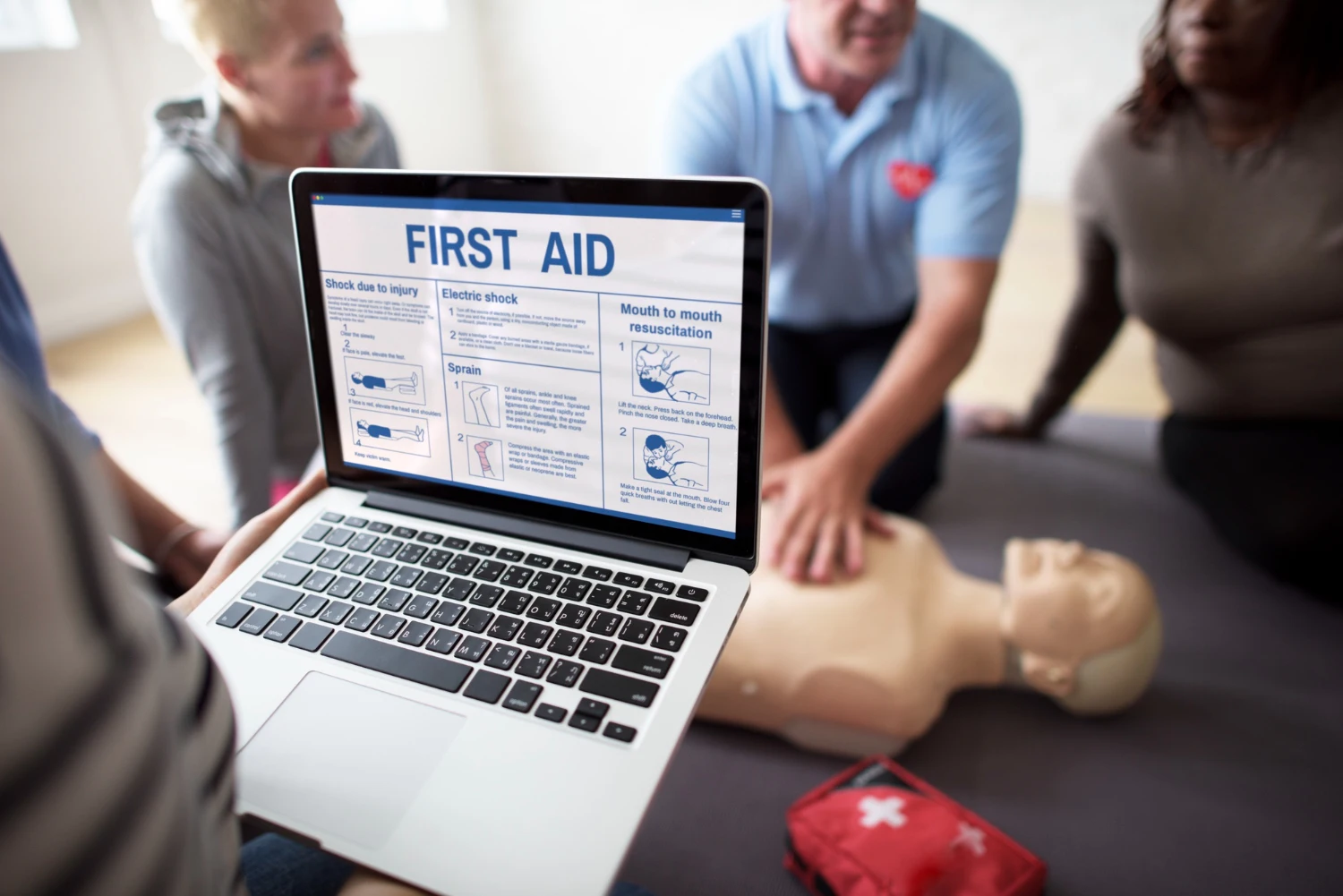Why First Responder First Aid Courses are Essential and Their Benefits

Introduction
First aid is a pivotal skill that holds the potential to save lives during emergencies. When incidents occur, first responders—be they police, paramedics, or firefighters. They are typically the first to arrive on the scene. Their actions serve as the initial point of contact in a crucial chain of survival. As such, the importance of comprehensive first aid training. For these brave individuals cannot be overstated. In this blog, we delve into the essentiality of first responder first aid courses. Highlighting the array of benefits, they confer.
Understanding the Role of a First Responder
A first responder is an individual who’s trained. To respond immediately to an incident, accident, or emergency. These professionals—from paramedics and police officers to firefighters. Often find themselves at the forefront when emergencies arise. Their role is to stabilise the situation and provide initial medical attention. And facilitate the victim’s seamless transfer to advanced medical care. The difference between life and death can often hinge on quick-thinking actions. Of these individuals, accentuating the importance of first-aid training.
An Overview of First Responder First Aid Courses
First responder first aid courses are designed to equip these professionals with the skills necessary to handle a myriad of emergency situations. They span everything from basic life support to cardiopulmonary resuscitation (CPR). Managing traumatic injuries and dealing with specific medical emergencies. Course providers range from the Red Cross to various approved health. And safety training organisations, offering recognised certifications that are vital to the profession.
The Essentiality of First Aid Courses for First Responders
The essentiality of first aid knowledge. As part of a first responder’s duties cannot be overemphasised. First aid is administered in critical moments. Following an accident can drastically improve survival rates. And reduce the severity of injuries. Case studies abound, demonstrating the positive outcomes facilitated by first responders. Who have comprehensive first aid training—from a police officer swiftly. Performing CPR on a heart attack victim. To a firefighter staunching a bleed and preventing shock.
Benefits of First Responder First Aid Courses
First responder first aid courses bring a wealth of benefits, both to the individuals trained and to society at large. One of the primary advantages is a heightened level of confidence. And competence during emergencies. Armed with the knowledge and skills from these courses. First responders can provide immediate, effective care. That can mitigate the severity of injuries or medical conditions. Furthermore, these courses enhance the overall quality of pre-hospital care. Contributing to improved patient outcomes. On a personal level. The training increases first responders’ safety awareness, potentially equipping them with the skills to save lives even outside of their professional capacity.
First Aid Courses for First Responders: Key Skills and Knowledge Gained
These training courses arm first responders with a gamut of vital skills. Basic life support skills, such as CPR. And using an automated external defibrillator (AED). Form the cornerstone of this training. They also delve into managing specific medical emergencies, like heart attacks and strokes. As well as handling traumatic injuries, including. Wound care and managing fractures and burns. Additionally, these courses impart essential skills like effective communication. During emergencies and understanding the legal and ethical aspects of first aid.
The Global Recognition of First Responder First Aid Training
First responder first aid training enjoys universal recognition. And an endorsement from leading health organisations. Like the World Health Organization and the Red Cross. Moreover, numerous countries have legal requirements mandating this training for first responders. Beyond compliance, however, having such certifications can significantly enhance employability. And professional development of first responders.
Encouraging More First Responders to Undertake First Aid Training
Despite the clear benefits, some first responders. May face barriers to undertaking first aid courses. Such as time constraints or costs. However, the importance of continuous learning. And refreshing first aid skills should not be underestimated. It’s crucial to promote this training and provide tips on choosing the right first aid course. Considering factors such as course content, provider credibility, and practical learning opportunities.
Conclusion
In summary, first responder first aid courses. Are an indispensable element in the realm of emergency services. They equip our first responders with vital skills. Enhancing their ability to save lives and reduce the severity of injuries. And improve patient outcomes. Thus, for any first responder pursuing first-aid training. It is not merely an advantage—it’s a necessity.
Frequently Asked Questions
1. What exactly does a first responder do?
A first responder is the initial. A critical link in the chain of survival during emergencies. Their roles include stabilising emergency scenes and providing initial medical care. And preparing patients for the arrival of more advanced medical services. First responders can be police officers, paramedics, and firefighters. Or even trained members of the public.
2. What kind of skills do first responder first aid courses teach?
First responder first aid courses provide a broad range of life-saving skills. This includes basic life support like CPR and using an AED. Managing traumatic injuries such as fractures and burns. And handling specific medical emergencies like heart attacks and strokes. They also cover effective communication during emergencies. And understanding the legal and ethical aspects of first aid.
3. Why are first responder first aid courses important?
First aid courses equip first responders. With the knowledge and skills to provide immediately. Effective care during emergencies. This can drastically improve survival rates. Reduce the severity of injuries, and improve patient outcomes. First responders trained in first aid are also likely to feel more confident. And competent in handling emergency situations.
4. Who provides first responder first aid courses?
First responder first aid courses are offered. Various approved health and safety training organisations. This includes internationally recognised bodies like the Red Cross. These providers offer comprehensive training that leads to recognised certifications.
5. Is first aid training legally required for first responders?
In many countries, first aid training. It is a legal requirement for professional first responders. Even where it’s not mandatory, it’s widely recognised as an essential part of training for anyone in a first responder role.
6. How can first responders choose the right first aid course?
Choosing the right first aid course often depends on the specific requirements. Of the first responder role. As well as individual learning preferences. Factors to consider may include the course content and the credibility of the provider. The cost and the opportunities for practical learning and assessment.
-
6 Career Advancements Enabled by Completing a White Card Training Course
November 06, 2023
-
7 Career Opportunities Unlocked by a Working at Heights Certification
October 24, 2023
-
7 High-Paying Jobs You Can Get with a GWO Training Certification
October 20, 2023
-
Top 7 Career Advancements After Completing a High Pressure Water Jetting Course
October 18, 2023
-
5 Essential Techniques Taught in High Pressure Water Jetting Courses
October 18, 2023
-
7 Career Opportunities after Completing Vacuum Loading Training
October 17, 2023







